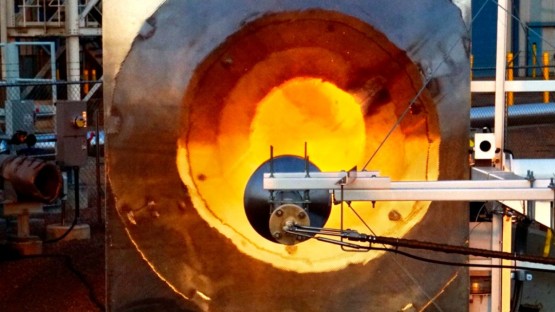Splitting carbon dioxide’s notoriously strong molecular bonds is no easy task, but a new grant is bringing together a Cornell research group and industry partners to develop 3D-printed ceramics that can be used to more efficiently break apart carbon emissions and turn them into clean energy. Sadaf Sobhani, assistant professor of mechanical and aerospace engineering, is leading a $50,000 FuzeHub grant in partnership with ceramic 3D-printing company Lithoz America and energy startup Dimensional Energy.
More from the News
Dimensional Energy, a Cornellian-founded and run company, uses energy reactors to convert carbon dioxide into chemicals that can be further processed into clean aviation fuel. Although the technology has gained support from an airline company and other investors, challenges still exist in scaling it up.
“Excellent thermal properties and corrosion resistance make ceramics attractive for these reactors, but significant design constraints limit their actual performance,” Sobhani said. “The freedom of design and choice of materials enabled by ceramic additive manufacturing will narrow the theory-performance gap to hit the desired milestones.”
Sobhani had previously partnered with Lithoz America to investigate how a combination of computational modeling and 3D printing could be used to create highly customized ceramic structures that can withstand the high-temperatures used in reactors and other industrial settings. In another research project, Sobhani highlighted the benefits of using 3D printing to rapidly prototype electrochemical reactors with unique shapes and designs that could optimize performance and conversion rates.
The FuzeHub grant will be used to develop new advanced printable ceramics that are better able to withstand the challenging operating environments of clean energy reactors, targeting specialized thermocatalytic reactors like those used by Dimensional Energy.
“I’m really looking forward to bringing our research to a market setting, and in particular to help create more environmentally responsible fuels and chemicals,” Sobhani said.
The collaborative project is among nine others that recently received funding from FuzeHub, a not-for-profit organization providing resources to solve business growth challenges in New York state.
“Stronger domestic production supports a more resilient economy,” said FuzeHub executive director Elena Garuc in an announcement for the funding. “During this round of Manufacturing Grants, many of the projects that were selected involved advanced materials. As awardees work to solve technical challenges, they’re also supporting the onshoring of production, which is crucial for supply chain resiliency, especially in these post-pandemic times.”
Subscribe to AM Chronicle Newsletter to stay connected: https://bit.ly/3fBZ1mP
Follow us on LinkedIn: https://bit.ly/3IjhrFq
Visit for more interesting content on additive manufacturing: https://amchronicle.com/

